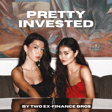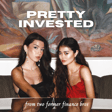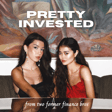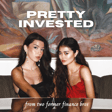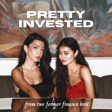
Welcome to Pretty Invested: Money is and isn’t everything
Welcome to Pretty Invested, the podcast where two recovering finance bros demystify and talk candidly about finance & wealth for the girls.
On this first episode, Eleanor and LD talk about why they started Pretty Invested, their personal financial journeys, and those fun but traditionally taboo money subjects.
You can find us on YouTube, TikTok, and Instagram at:
https://www.youtube.com/@PrettyInvestedMedia
https://www.tiktok.com/@prettyinvestedmedia
https://www.instagram.com/prettyinvestedmedia
Pretty Invested Media and this related information does not constitute professional or financial advice of any kind (including business, employment, investment advisory, accounting, tax, and/or legal advice). Advice from a suitably qualified professional should always be sought in relation to any particular matter or circumstance.
